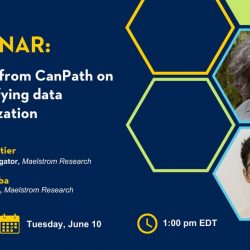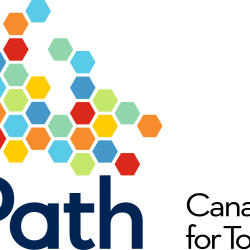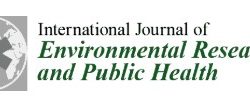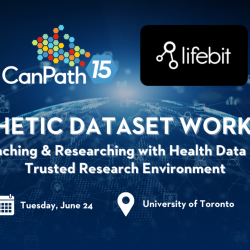Air pollution isn’t just a lung issue. It has far-reaching effects on immune function and autoimmune diseases. CanPath’s vast dataset offers researchers a unique opportunity to explore these connections and advance air pollution and autoimmune disease research. Air pollution is often associated with respiratory conditions, but emerging research reveals its impact extends beyond the lungs, influencing immune system function and contributing to autoimmune and rheumatic diseases. Understanding these connections is critical for disease prevention, treatment, and public health strategies. Dr. Sasha Bernatsky, a rheumatologist and epidemiologist, has been at the forefront of this research. Her work highlights how air pollution, especially fine particulate matter (PM2.5), may act as an environmental trigger for immune dysfunction. CanPath, Canada’s largest population health study, provides researchers with the data needed to examine these links in depth. How air pollution affects the immune system and autoimmune disease Air pollutants include PM2.5, nitrogen dioxide (NO2), ozone, and other entities. PM2.5 can enter the bloodstream, triggering systemic inflammation and immune dysregulation. While air pollution’s effects on respiratory conditions like asthma and lung cancer are well documented, its role in autoimmune diseases is a newer area of investigation. “One of the really cool things about these kinds of analyses was that it provided one of the first indications that air pollution may affect the immune system,” said Dr. Bernatsky. “Prior to these kinds of analyses, we had good data on what happens when you are exposed to PM2.5 in terms of asthma risk or lung cancer. That makes sense because you breathe in the air, and there’s a local effect. But this was one of the first analyses looking at a totally different kind of disease. It convinced people at Health Canada’s air health effects assessment division that, indeed, you can have health effects far beyond just the lung.” This growing body of research underscores the need for large-scale, longitudinal data to better understand the full spectrum of air pollution’s impact on immune-mediated conditions like rheumatoid arthritis and systemic lupus. CanPath’s role in advancing rheumatic disease research Arthritis data resources in CanPath: Biosamples, genotyping, and self-reported diagnoses for osteoarthritis, rheumatoid arthritis, and other forms CanPath’s large-scale, longitudinal dataset is an invaluable resource for researchers undertaking air pollution and autoimmune disease research. By linking environmental exposure data to genetic, lifestyle, and health information, CanPath enables scientists to explore how air pollution contributes to immune-mediated diseases over time. “CanPath serum samples and data were extremely helpful,” Dr. Bernatsky emphasized. “In fact, I just don’t see any way we could have done what we did without CanPath.” Dr. Trevor Dummer, an expert in environmental health, reflected on the study’s evolution and its potential for continued discoveries: “It’s nice to see some of those results because I can think back to many, many years ago. You know, CanPath has been going for 15 years. Now it’s a considerable amount of time. I recall the early collaboration, so it’s great to see the fruits of all of those labours.” This extensive dataset allows researchers to track patterns over time, assessing how long-term exposure to air pollution affects disease development and progression. Implications for future research and public health The insights gained from CanPath’s data have the potential to: Inform air quality policies and environmental regulations Improve public health strategies for reducing autoimmune disease risks Enlighten scientific, patient and physician groups regarding immune-mediated disease etiology As air pollution remains a global concern, leveraging large-scale datasets will be key to understanding and mitigating its impact. Researchers can utilize CanPath data linked with environmental exposure data from the Canadian Urban Environmental Health Research Consortium (CANUE) to investigate immune-mediated diseases and the environment. Explore available datasets and application processes on the CanPath Portal By continuing to explore how pollution influences immune-mediated disease, researchers can also help shape policies and interventions that protect both individual and population health. For those looking to advance this work, CanPath data is invaluable for uncovering new insights in environmental and autoimmune disease research.










